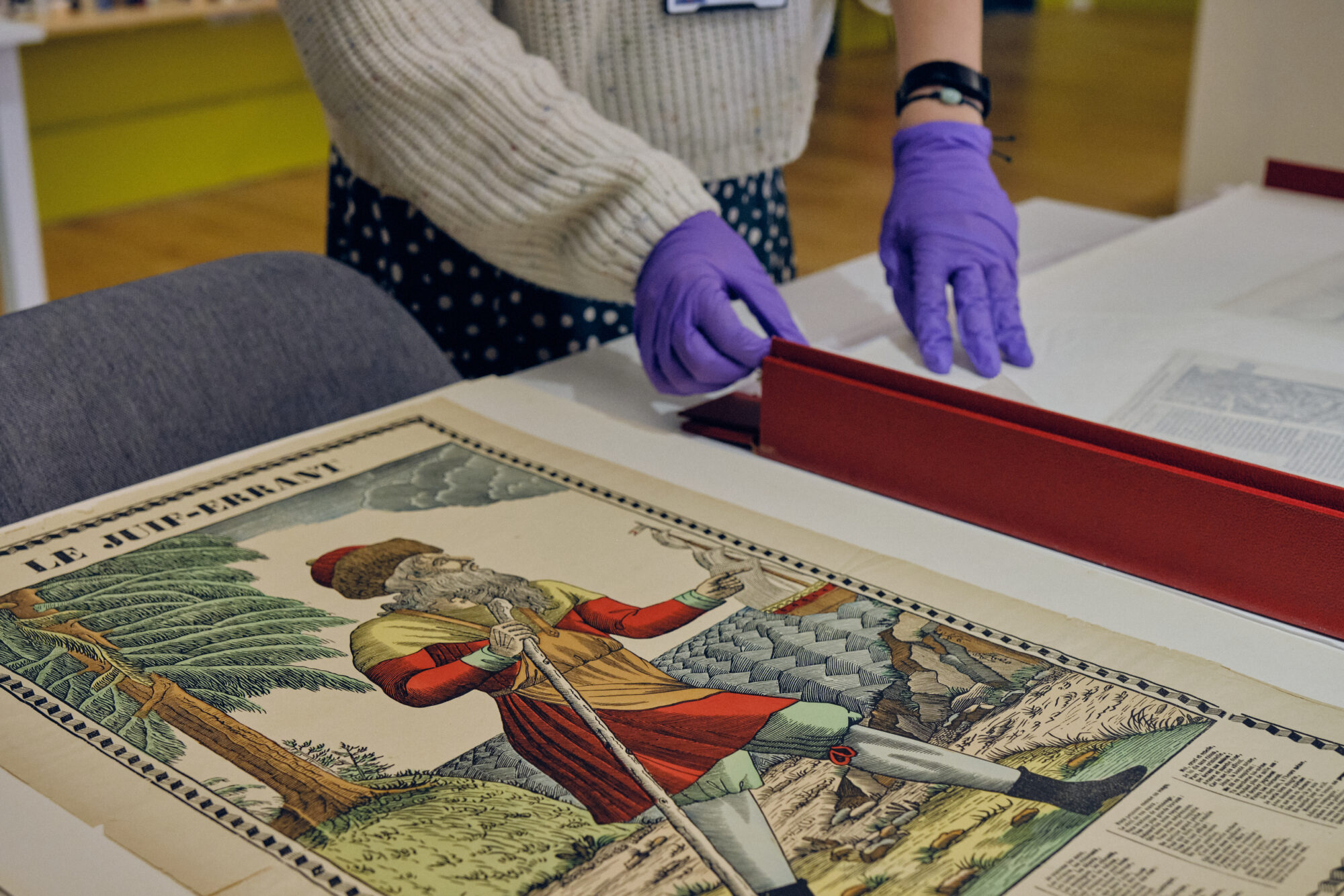 Exhibition
Exhibition
Blood
Don’t miss this cutting edge exploration of what unites and divides us. The exhibition examines the provocative and complex subject of blood….

In March 2020, just as Covid-19 arrived in the UK, the Jewish Museum London announced its new Interim Director, Frances Jeens. The Museum quickly refocused its programme online, with an emphasis on its award-winning education offer, which Frances had led for the past seven years. Throughout the Covid-19 lockdowns the Museum kept a focus on its core work with partner organisations to serve the needs of teachers, families, community groups and mental health charities. In July 2020 the Museum appointed a new Chair of Trustees, Nick Viner, who together with Frances has been developing a new strategic vision for the Museum. Both are well versed in approaching complex and sensitive narratives and committed to social impact work against antisemitism, the Museum has never been shy of addressing big conversations and that attitude remains the same.
In fact, the important work of the Museum in countering antisemitism and hatred continues to be as relevant today as it always has been. When the building was forced to close by COVID-19, schools called for immediate support, and so did the care homes they have worked with for years, the families they engaged and the interfaith and mental health partner organisations that have been working so incredibly hard. The Museum was already preparing a new direction to make the organisation more financially sustainable before Covid-19 struck and in choosing to refocus the work of the Museum on the communities they serve, the Museum has been nominated for awards across the museum sector.
The Museum’s work over the 15 months of building closure was both public facing and behind the scenes. Their virtual programming was recognised as sector leading with their Virtual Classrooms retaining 40% of audiences and their wider programming attracting over 130,000 online visitors last year. Behind the scenes the Interim Director and Chair of Trustees instigated a full Governance Review and recently appointed six new trustees from a diverse range of backgrounds including those experienced in local government, television and museums. In addition, they refocused curatorial work back to our core collection with the appointment of an experienced Collections Manager to begin a full audit of the collection and lead the digitisation and engagement programme.
In July 2021 the UK government allowed their Museum building to reopen. Re-awaking the building meant trying new things, the Museum has seen the power of online and it’s here to stay in their programming but they’ve also seen the power in trying new things and connecting in new ways. Their new ground and third floors are a testament to the new way of thinking. The collection is more available, more accessible and more alive than ever before. They invite audiences to come and be inspired by the outstanding collection and to create their own research and displays. The ground floor is a community takeover exhibition space, the third floor is a fully equipped research library and collections digitisation space. The programming includes a new grief and loss workshop for children and a representative and inclusive Judaism resource for teachers.
Most recently, in September 2021, the Museum welcomed their newest partner; the Jewish Genealogical Society of Great Britain. The Society have moved their entire library into the research space, to join the over 2000 books already now publicly available for the first time, to help visitors with their own academic and family history research.
The Museum staff, trustees and volunteers believe that the Museum is a place of dialogue and the re-opening has clearly marked the beginning of a new conversation for the future.